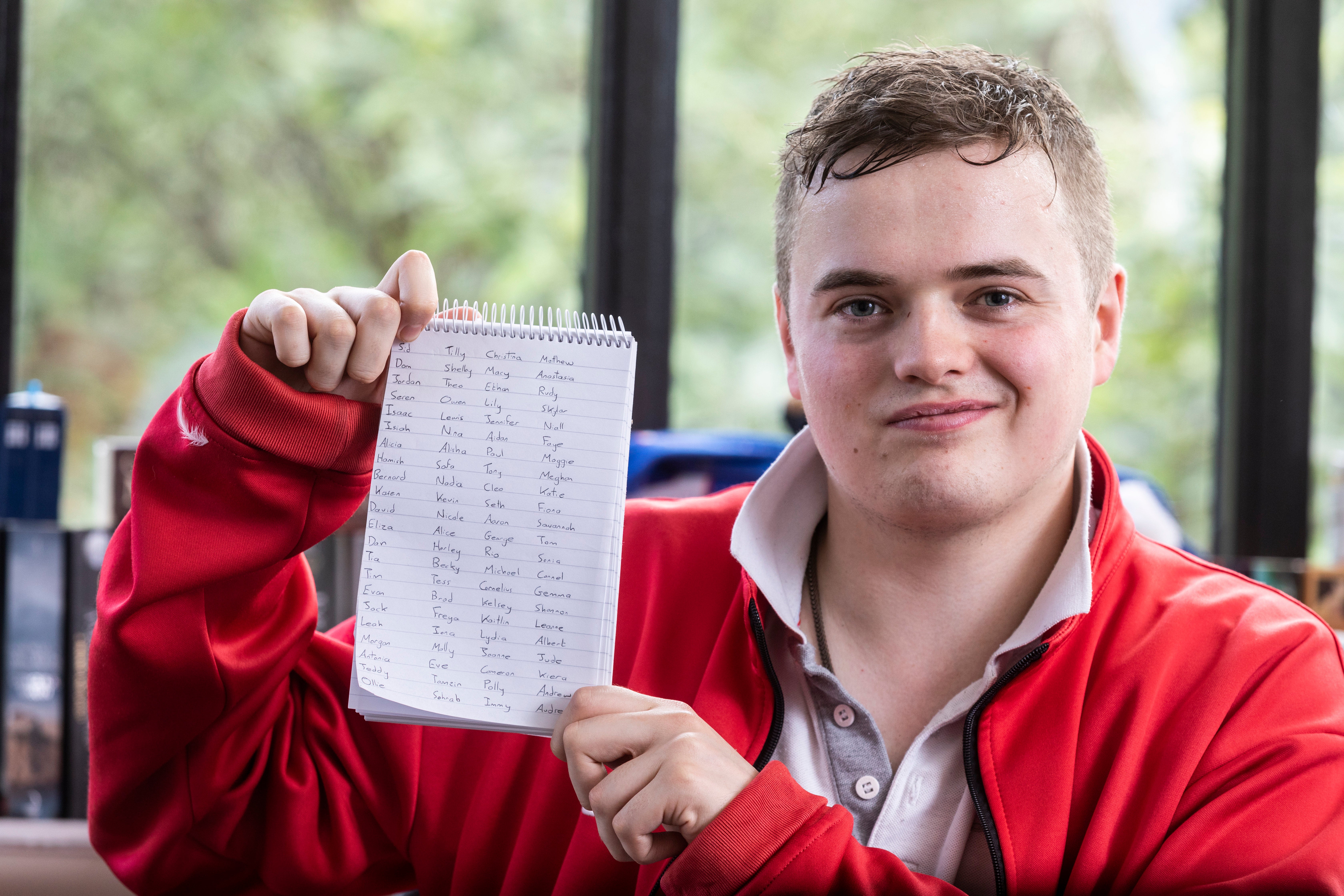Your support helps us to tell the story
From reproductive rights to climate change to Big Tech, The Independent is on the ground when the story is developing. Whether it's investigating the financials of Elon Musk's pro-Trump PAC or producing our latest documentary, 'The A Word', which shines a light on the American women fighting for reproductive rights, we know how important it is to parse out the facts from the messaging.
At such a critical moment in US history, we need reporters on the ground. Your donation allows us to keep sending journalists to speak to both sides of the story.
The Independent is trusted by Americans across the entire political spectrum. And unlike many other quality news outlets, we choose not to lock Americans out of our reporting and analysis with paywalls. We believe quality journalism should be available to everyone, paid for by those who can afford it.
Your support makes all the difference.A man who has a rare condition that enable him to taste, smell and feel words has said that the word “Christmas” doesn’t taste the way most people might think.
Henry Gray, 23, was diagnosed with lexical-gustatory synaestheria in 2009, which means he can taste, smell or have a feeling associated with words.
To him, the word “Christmas” doesn’t taste like mulled wine and mince pies, but instead tastes like “crisps dipped in plain yoghurt”.
Synaesthesia is a neurological condition that results in the joining or merging of senses that aren’t normally connected.
Those with the condition can often taste or smell when hearing, speaking, reading or thinking about words.
Gray, from Newcastle, says the word “festive” smells like incense, while “tinsel” tastes “like a mouthful of crushed ice”.
“For Saint Nicholas – ‘Saint’ is salty and ‘Nicholas’ is little puzzle pieces dipped in vinegar,” he adds.
“Interestingly, ‘turkey’ tastes like shredded chicken.
“’Scrooge’ is a weird one – it tastes like spaghetti hoops but with a metallic taste as if the spaghetti hoops are in melting battery metal.”
Gray explains: “I’ve always associated words and names with tastes, smells and feelings - it’s all I’ve ever known."

He had assumed everyone was able to taste or smell words until his parents and teachers pulled him up on comments on classmates’ names.
“I would say things like ‘Lucy is like a big red lollipop’ when they called her name out in the register and everyone would look at me confused,” he recalls.
“Most of the time I quite like having synaesthesia and it doesn’t get in the way.
“I’m a bartender at a pub so whenever I look at people’s ID, I get a strong sense of the taste and smell.”
Gray revealed that “one of the worst names for me is Kirsty” because it has “the faint smell of urine”.
The condition mainly affects him with names, but other words such as “Yuletide” has the sensation of feeling sick, and “bauble” tastes like bubblegum.
Other festive words that carry different sensations for Gray include “presents”, which feels like placing lips against a window; “Santa”, which is like biting into an M&M; “reindeer”, which triggers a visual of silver and red sparkles; and “winter”, which brings an image “of a white bunny, hiding its face with its own floppy ears”.
The sensations brought on by synaesthesia are automatic and cannot be turned off, according to the UK Synaesthesia Association. It is not a disease or an illness and is not harmful.
Reporting by SWNS




Join our commenting forum
Join thought-provoking conversations, follow other Independent readers and see their replies
Comments